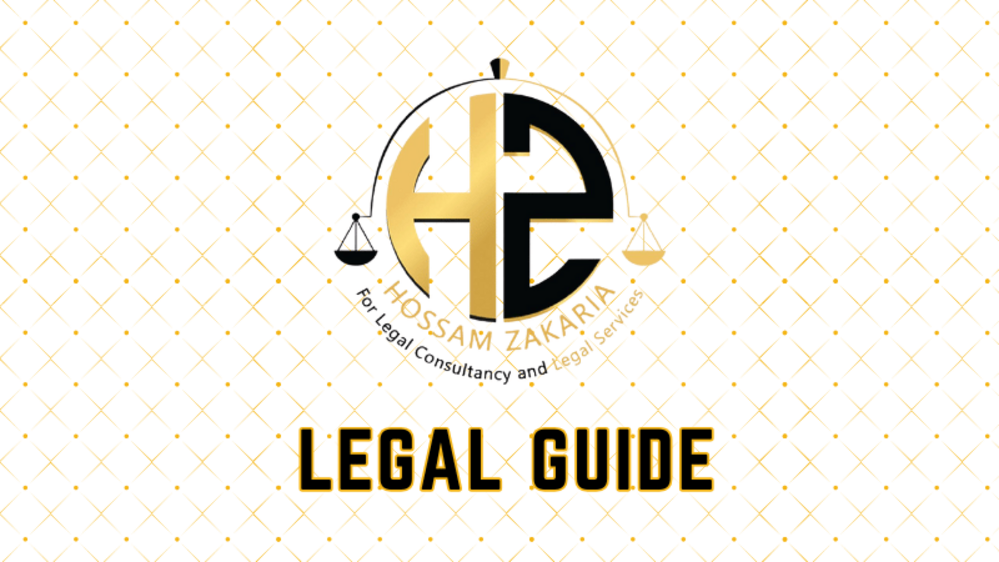Introduction: Strategic Legal Insights for Setting Up a Branch Office in the UAE
The landscape for international business expansion in the United Arab Emirates (UAE) has evolved considerably, shaped by the progressive commercial vision of Vision 2030 and a dynamic legal environment. As foreign enterprises seek to tap into the UAE’s vibrant economy, the option to establish a branch office has gained even greater relevance. Recent updates, such as those from the Federal Decree-Law No. 32 of 2021 on Commercial Companies, together with pertinent Cabinet and Ministerial resolutions, have redefined the compliance expectations and operational requirements for branch offices. This comprehensive legal guide, designed for CEOs, legal counsels, compliance managers, and corporate strategists, delivers in-depth analysis and practical direction tailored to the 2025 regulatory climate. Readers will discover the pivotal legal considerations, real-world implementation strategies, and the latest compliance protocols—from licensing to risk mitigation—ensuring a robust, future-ready approach for their UAE branch office initiatives.
Table of Contents
- Overview of UAE Branch Office Legal Framework
- Latest 2025 Legal Updates Impacting Branch Offices
- Step-by-Step Process for Setting Up a UAE Branch Office
- Licensing, Permits, and Regulatory Approvals
- Legal Liabilities and Compliance for UAE Branch Offices
- Key Legal Changes: Old vs. New Regulations
- Case Studies and Hypothetical Scenarios
- Risks, Non-Compliance, and Effective Mitigation Strategy
- Recommended Best Practices for 2025 and Beyond
- Conclusion: Business Forward—Staying Compliant and Competitive
Overview of UAE Branch Office Legal Framework
Defining the Branch Office in UAE Commercial Law
Under Federal Decree-Law No. 32 of 2021 on Commercial Companies, a branch office is a legally dependent extension of a parent company—foreign or domestic—authorized to conduct business activities as specified in its license. Unlike a subsidiary, a branch does not possess its own separate legal identity. Its operations are considered as a direct extension of the parent entity, which remains ultimately responsible for the branch’s legal and financial liabilities.
Relevant Legal Provisions and Authorities
- Federal Decree-Law No. 32 of 2021: Governs company types, registration requirements, and the conduct of branch offices.
- Cabinet Decision No. 58 of 2020 (on Ultimate Beneficial Owner Procedures): Imposes due diligence and transparency obligations.
- Ministry of Economy and Department of Economic Development (DED): Dual regulatory authorities for licensing and oversight.
Key Insight: The branch office structure is often preferable for companies wishing to maintain 100% control and oversight from their country of origin, albeit with direct exposure to liability risks in the UAE.
Latest 2025 Legal Updates Impacting Branch Offices
Regulatory Developments: 2021-2025
The UAE’s corporate regulatory regime has witnessed a series of recalibrations, notably to enhance transparency, streamline procedures, and align with international compliance standards. The following are noteworthy:
- Enhanced requirements for Ultimate Beneficial Owner (UBO) disclosures, per Cabinet Decision No. 58/2020.
- Updates to foreign ownership restrictions, allowing certain business activities to be fully foreign-owned outside free zones pursuant to the Amendment to the Commercial Companies Law.
- Mandatory alignment with anti-money laundering (AML) and counter-terrorism financing protocols.
- Increased penalties for late renewal, misinformation, or unlicensed activity.
Official Sources: UAE Ministry of Justice, UAE Government Portal, Federal Legal Gazette.
Key Focus: UAE Law 2025 Updates for Branch Offices
Branch offices must now comply with renewed corporate governance standards and increased regulatory scrutiny. Federal authorities have prioritized digital compliance processes, but with higher expectations for substantive UBO and AML checks.
Step-by-Step Process for Setting Up a UAE Branch Office
Pre-Application Planning and Legal Due Diligence
- Strategy and Business Scope: Define permitted activities according to the latest DED Activity List.
- Choose Location: Decide between mainland or a specific emirate, as local DEDs and municipalities may have nuanced requirements.
- Appoint a Local Service Agent (LSA): For most mainland activities, a UAE national must act as LSA (note: not an equity partner).
Licensing Pathway: Practical Steps
- Reserve Trade Name and Obtain Initial Approval:
- Submit application with parent company details and prescribed documentation.
- Attest Company Documents:
- Parent company’s certificate of incorporation and board resolution must be notarized, legalized, and attested by the UAE embassy and Ministry of Foreign Affairs.
- Prepare Power of Attorney and Appointment of Manager:
- Mandatory notarization and legalization.
- Secure Office Space:
- Physical address is required for mainland branches.
- File with DED & Obtain Commercial License:
- Upon approval and payment of requisite fees.
- Register with Relevant Authorities:
- Includes the Ministry of Economy, Chamber of Commerce, Ministry of Human Resources and Emiratisation (MOHRE), and applicable tax registrations (e.g., VAT with the Federal Tax Authority if thresholds met).
- Bank Account Opening:
- Evidence of licensing and compliance is mandatory for corporate account establishment.
Visual Suggestion:
Process Flow: Display a visual step-by-step diagram summarizing these phases for greater clarity during internal decision-making presentations.
Licensing, Permits, and Regulatory Approvals
Licensing Matrix: Mainland vs. Free Zone Branch Offices
| Requirement | Mainland Branch | Free Zone Branch |
|---|---|---|
| Local Service Agent (LSA) | Required | Not Required (varies by free zone) |
| Permitted Activities | Broad, subject to DED list | Limited by free zone category |
| Ownership | 100% foreign for most activities | 100% foreign in all zones |
| Scope of Operation | Across UAE (subject to licensing) | Within free zone; need agent for UAE mainland |
| Regulatory Approvals | DED, Ministry of Economy | Free Zone Authority, Ministry of Economy (in some cases) |
Key Documentation Requirements
- Attested parent company documents
- Board resolution for branch formation and manager appointment
- Details relating to UBO (Ultimate Beneficial Owner)
- Lease agreement for office premises
- Passport copies of shareholders, manager, and UAE national LSA (where relevant)
License Renewal and Regulatory Compliance
Licenses must be renewed annually; late or incorrect filings may trigger administrative penalties, including temporary suspension of operations by DED or free zone authorities.
Consultancy Insight:
Transitioning from a free zone branch to a mainland branch, or vice versa, is not an automatic or frictionless process. It requires new regulatory approvals and sometimes the liquidation of the existing branch—underlining the importance of initial jurisdictional choice.
Legal Liabilities and Compliance for UAE Branch Offices
Parent Company Liability and Regulatory Oversight
Branches do not possess separate legal personality from their parent company. Under Article 327, Federal Decree-Law No. 32/2021, liabilities—including contractual and tortious—incurred by the branch are directly attributed to the parent company. Accordingly, regulatory authorities such as DED and Ministry of Economy exercise strict oversight over compliance with corporate, immigration, and labor laws.
Human Resources and Emiratisation Obligations
All branch offices employing staff in the mainland fall under the jurisdiction of the UAE Labour Law (Federal Decree-Law No. 33 of 2021) and MOHRE directives. Recent Emiratisation requirements may also apply, particularly for branches in commercial and professional sectors with 50 or more employees.
Ultimate Beneficial Owner (UBO) Disclosure
Cabinet Decision No. 58/2020 mandates comprehensive UBO registration, with strict deadlines for disclosures and updates. Non-compliance can result in administrative fines and license suspension.
AML and Economic Substance Requirements
Branches carrying out regulated financial, legal, or professional services must implement robust internal controls consistent with UAE’s AML-CFT requirements (Ministry of Justice guidance), and may be subject to economic substance regulations if undertaking relevant activities.
Key Legal Changes: Old vs. New Regulations
| Key Area | Pre-2021 Regulation | Post-2021 (Law 32) & 2025 Update |
|---|---|---|
| Foreign Ownership | Up to 49% in many sectors | 100% allowed in most sectors |
| LSA Requirement | Always mandatory | Still needed for several activities; some sectors now exempt |
| UBO Disclosure | Basic, non-public | Comprehensive, mandatory, and public in certain cases |
| Online Filing | Limited options | Digital registration and licensing available |
| AML/CFT | Basic obligations | Enhanced protocols, higher penalties |
| Penalties for Non-Compliance | Fines, but rarely license suspension | Frequent license suspension and higher fines |
Visual Suggestion:
Penalty Comparison Table: Summarize risk exposure for non-compliance under old and new rules for use in board-level reports.
Case Studies and Hypothetical Scenarios
Case Study 1: UBO Non-Disclosure Risk
A European manufacturing company establishes a branch in Dubai. The local compliance manager overlooks the new UBO deadline, resulting in an administrative fine of AED 100,000 and temporary license suspension. The company’s deliveries halt, causing reputational harm and financial losses. This situation underscores the imperative of robust compliance calendars and timely UBO data verification.
Case Study 2: Emiratisation Miss in HR Recruitment
An international IT firm with 60 UAE branch employees fails to onboard the mandatory Emirati proportion as required under the newest MOHRE guidelines. Consequences include periodic fines and restricted participation in future government contracts. The issue was only rectified after an employment law audit by legal consultants, highlighting the value of proactive compliance reviews.
Hypothetical: Branch Expansion Outside Free Zone
A US-based consulting firm opens a Dubai International Financial Centre (DIFC) branch, but seeks to operate in mainland Dubai. Their free zone license does not extend to the mainland. They must either appoint a commercial agent or establish a separate DED-registered branch, after which compliance with full UBO and mainland employment regulations is required.
Risks, Non-Compliance, and Effective Mitigation Strategy
Principal Risks
- Administrative penalties for failure to update licensing or UBO information.
- Loss of operating license following inspection by DED or free zone.
- Parent company exposure to UAE lawsuits arising from branch activities.
- Reputational risk due to regulatory breaches, especially in AML/CFT compliance.
Mitigation Strategies and Compliance Essentials
- Annual Legal Audits: Regular review of licensing status, UBO records, labor compliance, and regulatory filings.
- Internal Compliance Checklists: Deploy board-level tracking systems (e.g., renewal deadlines, regulatory changes, UBO data).
- Training and Awareness: Equip HR and compliance teams with up-to-date legal training, particularly on recent amendments.
- Legal Representation and Documentation: Engage local counsel to ensure that all notarized/legalized documents meet DED, ministry, and court standards.
Compliance Checklist Table
| Compliance Activity | Responsible Party | Frequency | Deadline |
|---|---|---|---|
| Licensing Renewal | Admin/Local Agent | Annually | Prior to expiry date |
| UBO Filings | Legal/Compliance | Whenever changes occur | 15 days from change |
| VAT Registration | Finance/Legal | Threshold triggered | Within 30 days |
| MOHRE Registration | HR/Legal | Initial & ongoing | Pre-hiring |
Recommended Best Practices for 2025 and Beyond
Building a Resilient UAE Branch Office Compliance Program
- Adopt a Forward-Looking Compliance Strategy: Monitor upcoming legislative changes using official UAE Ministry portals and gazettes.
- Enhance Digital Record-Keeping: Use digitized document management for all licensing, UBO, and regulatory files to reduce administrative delays.
- Localize Corporate Governance: Tailor internal policies to Emirati regulatory requirements, including board oversight of compliance functions.
- Engage with Regulatory Authorities: Participate in MOHRE and DED outreach programs to stay abreast of best practices and soft law guidance.
- Risk-Based Legal Reviews: Conduct annual external legal reviews to identify hidden vulnerabilities in branch operations.
Visual Suggestion:
Compliance Program Flowchart: Illustrate the ideal compliance program structure for a UAE branch, suitable for executive briefings.
Conclusion: Business Forward—Staying Compliant and Competitive
The regulatory architecture for creating and operating a branch office in the UAE is both robust and complex—evolving in tandem with global best practices and national economic ambitions. The 2025 updates, particularly to UBO, licensing, and Emiratisation enforcement, signal a decisive shift towards transparency and operational discipline. For international businesses, rigorous compliance is not merely a box-ticking exercise, but a fundamental pillar of sustainable success and risk mitigation. By adopting the best practices and strategic legal insights outlined in this guide, organizations can position their UAE branch offices for resilient, agile growth while maintaining full alignment with the country’s stringent legal expectations. As the UAE continues to align with international business standards, a proactive and informed compliance posture remains the optimal route to safeguard business continuity and unlock long-term value.



